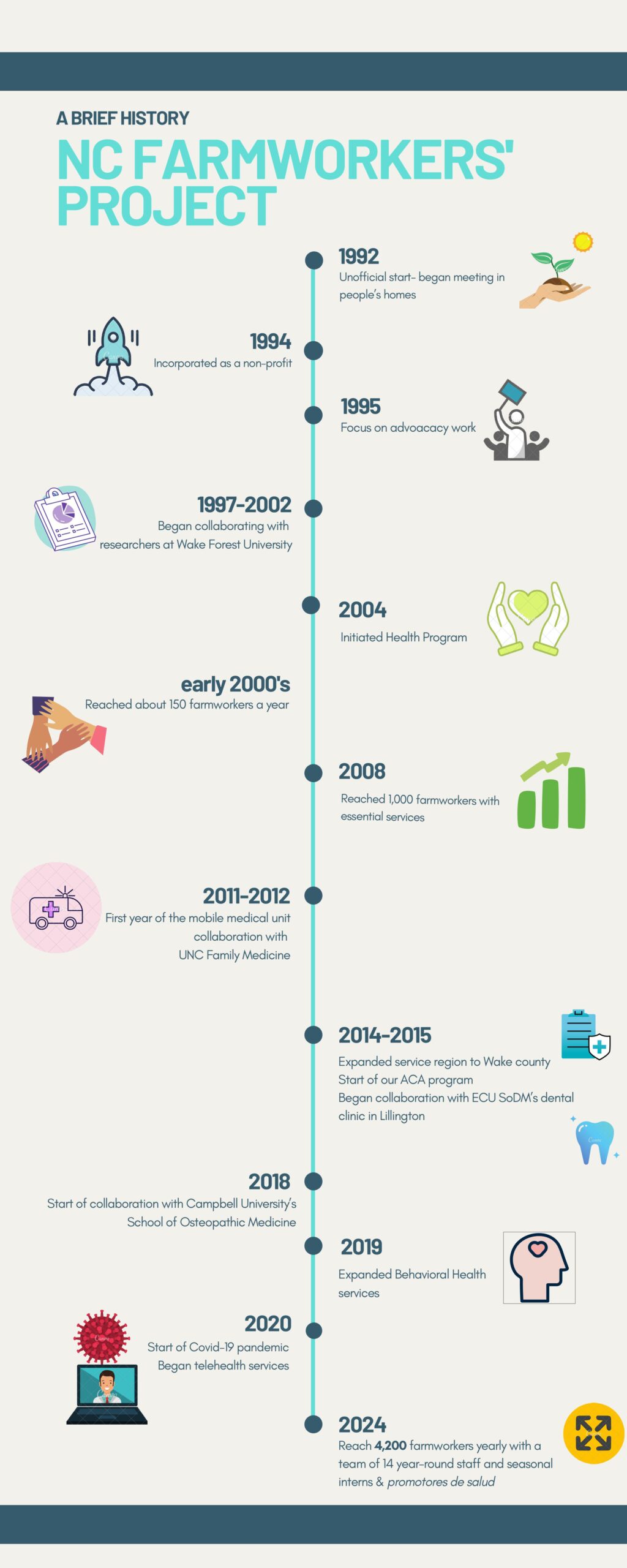Origin
The North Carolina Farmworkers’ Project began as a community project to respond to the needs of the farmworker community in Eastern North Carolina in 1992. We began meeting in people’s homes, and eventually acquired half of a trailer in Newton Grove as an office. In 1994, the Farmworkers’ Project was incorporated as a nonprofit. Originally founded as a worker organizing group, we have always used a popular education approach to our community work.
Growth
The Farmworkers’ Project moved to Benson in 2000. By 2000, we were working in partnership with Wake Forest University doing community-based participatory research on topics important to farmworkers’ lives, like how pesticides affect farmworker health. We have continued partnerships with academic teams interested in research that is relevant to the well-being of farmworkers. We currently partner with Wake Forest School of Medicine, East Carolina University, and UNC Charlotte on research projects.
We initiated our health program with funding from the Office of Rural Health in 2004. The health program has steadily grown to become our largest area of focus. In 2004-2005, we completed just over 130 health assessments with farmworkers and provided them with health education and enabling services. We now reach over 4,200 farmworkers each year with essential services. We rely heavily on collaborations with clinical partners to enable workers to access any type of healthcare they may need. Our primary clinical partners are the Campbell Community Care Clinic, Benson Health, UNC Department of Family Medicine, East Carolina University Dental School’s Community Service Learning Center in Lillington, NC, and El Futuro. See our Programs and Partners pages to learn more about these and other collaborations that are essential to our success.
Present Day
Today, the NC Farmworkers’ Project employs fourteen year-round staff members, with additional summer interns and part-time staff during the peak agricultural season. Our work spans multiple program areas and focus, all centered around supporting farmworkers’ health and well-being. We focus on connecting farmworkers to essential health services; providing information and assistance with accessing health insurance; delivering health education; and offering enabling services that facilitate access to primary, dental, and behavioral health care.

